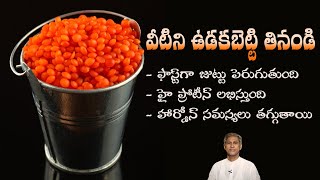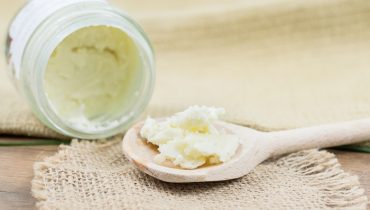Is Too Much Protein A Bad Thing?

Our hair needs a balance of moisture and protein to perform at an optimal level. The things we do to our hair over the course of our daily lives, causes the protein and moisture levels to rise and/or fall. The changes in those levels are not usually extreme enough to cause any alarm. We probably wouldn’t even notice any physical changes that occur.
Things like heat, chemical processes and hair color, cause the protein and moisture levels to be thrown off to such an extent that we notice physical changes in the hair strands. One of the most common responses to the changes seen in hair that has been compromised by heat, chemicals or color is to add protein.
This is logical and it is necessary. The bonds that make up a healthy strand of hair are comprised of protein that’s broken down during the processes mentioned above. So it makes sense to replenish the protein bonds by adding products to the hair which are protein heavy.
However, too much of anything can be harmful. Because we don’t have a way of measuring the exact levels of protein our hair needs, in order to restore the perfect balance, we risk overloading the hair with protein. Let’s talk about protein and how to prevent overloading your hair with it.
Too Little Protein
Protein aids in your hair’s elasticity. A lack of protein will result in your hair breaking when it’s stretched, instead of snapping back into place. Your hair may also stretch without snapping, but will remain overly stretched out when you pull it. Both can mean you don’t have enough protein in your strands for your hair to perform well. Hair that feels limp and mushy can also be an indicator that you need to up the amount of protein your hair is getting.

Too Much Protein
On the other end of the spectrum we have too much protein. Too much protein can result in your hair feeling dry and brittle. It can also be prone to breakage midway up the shaft of the strand. Adding moisture by using a moisturizing deep conditioner* may help to even out the balance if your hair has too much protein.
However, adding moisture alone doesn’t ‘cure’ the problem of protein overload. The hair will still have too much protein in each strand. It just may not feel as bad to the touch as it does when you add moisture to it.
Over time, protein overload can lead to a head full of damaged hair. What you want to do is to actually remove the excess protein that has accumulated in your strands. Adding moisture is more of a quick fix. When you remove the protein you take the hair back to a balanced state.
Think of it as a chalkboard. If you use an eraser you will still be able to see the residue the chalk leaves behind. That’s what adding moisture to hair with too much protein does. Now, imagine taking a wet cloth and a cleaning agent and cleaning the chalkboard. When it dries, there is no residue and you have a clean slate.
How to restore balance?
There are things you can do which will remove the protein that has bonded to your strands. You want to be mindful when choosing a method of removal because some treatments can be harmful and may cause more of an issue than the excess protein does.
Examine your hair as a whole, and then decide on how to treat the problem. Things to consider would be whether you are relaxed or natural, whether you hair is damaged in addition to having too much protein, whether your hair is high or low porosity and what results you want afterward.
Adding a small amount of salt to your hair can speed up the removal process. The salt breaks the bonds that hold the excess protein molecules to your hair strand. Once that bond is broken, the extra protein will be washed out of your hair.
Depending on the length of your hair, you can add up to one tablespoon of salt to your conditioner and follow up with a second wash and then a conditioning treatment and a final rinse.
Another tip is to use a chelating shampoo* before you proceed with the salt treatment. Chelating shampoos remove residue, buildup and unwanted minerals from your hair. What this will do, is give you direct access to the excess protein in your hair. You won’t have to worry about fighting through minerals to get to the layers of your hair that house the protein.
If you think you’re experiencing protein overload, examine your hair for the characteristics listed above. Try to use moisture rich products and give your hair a minute to respond. If it still doesn’t perform like a healthy head of hair, you can proceed with the salt treatment.




